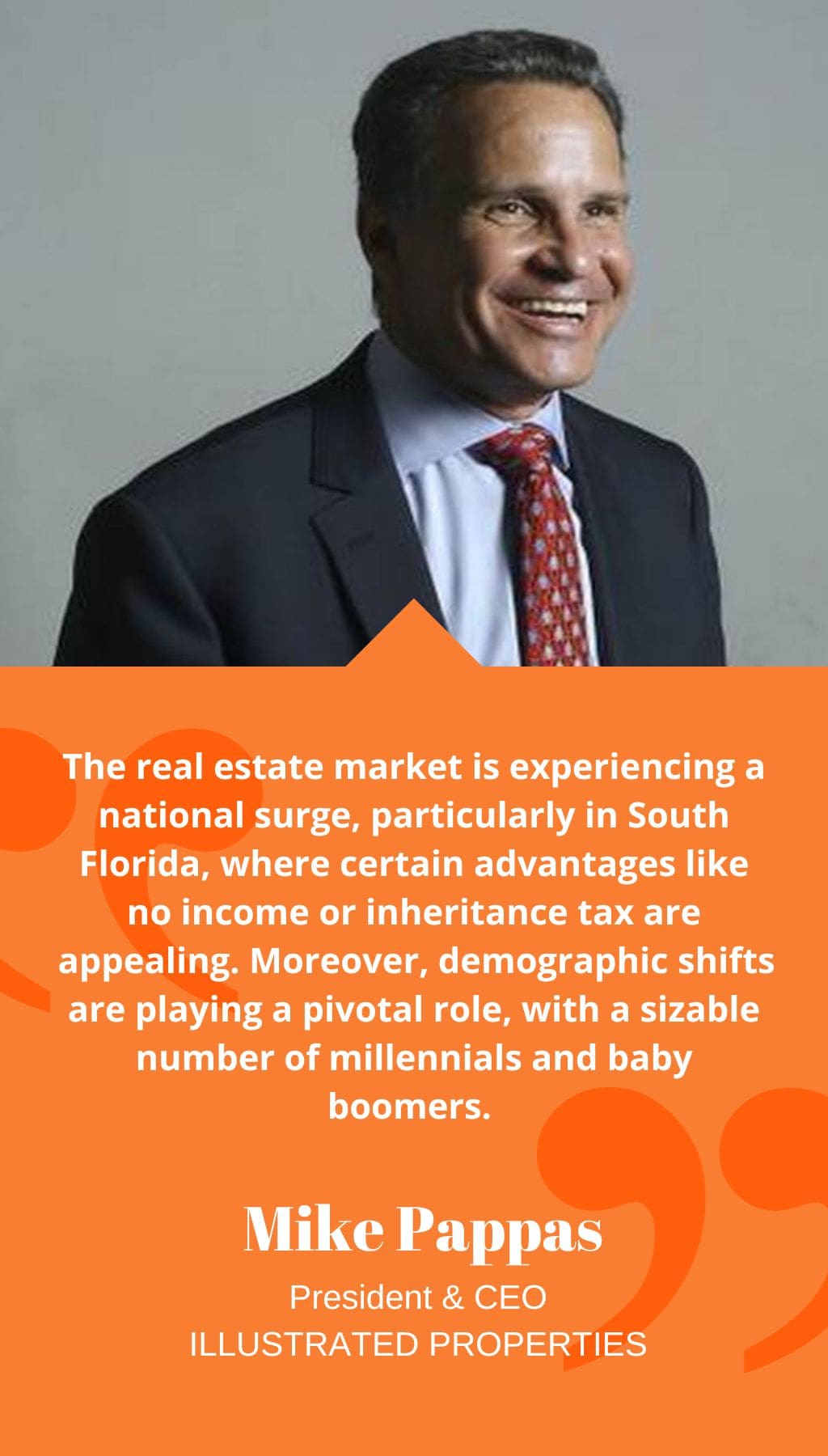
- USA | 31 July 2020

What do you think is driving the significant increase in capital pouring into the real estate market?
The real estate market is experiencing a national surge, particularly in South Florida, where certain advantages like no income or inheritance tax are appealing. Moreover, demographic shifts are playing a pivotal role, with a sizable number of millennials and baby boomers. The average homebuyer age is around 34, and in the next few years, approximately 15 million millennials will hit that age, generating substantial demand for housing. Additionally, historically low interest rates, hovering below 3%, are creating an environment where borrowing feels almost like acquiring money for free.
How would you address concerns about a potential real estate bubble?
Undoubtedly, there’s a surplus of available capital, partly stemming from government injections to tackle the pandemic. While there’s been a significant increase in asset purchases, the situation isn’t necessarily indicative of a bubble. Despite the recent 20% escalation in home prices, they remain within the bounds of affordability, especially considering the ultra-low interest rates. Unlike the pre-2008 crash era, today’s loan approval processes are under stringent scrutiny, preventing risky approvals. The future will reveal more once the supply chain opens up, but for now, it doesn’t seem imminent.
Which asset classes are proving to be the most successful in this market?
The industrial market has been thriving due to the boom in e-commerce. Apartment sales have also seen remarkable success. Contrary to expectations of distress, retail, hotel, and office spaces have not suffered as anticipated. Cap rates have been decreasing in tandem with interest rates. While certain retailers faced challenges, in South Florida, the market has witnessed others swiftly stepping in. Overall, the commercial market appears robust, although the office subleasing space might have taken a hit.














